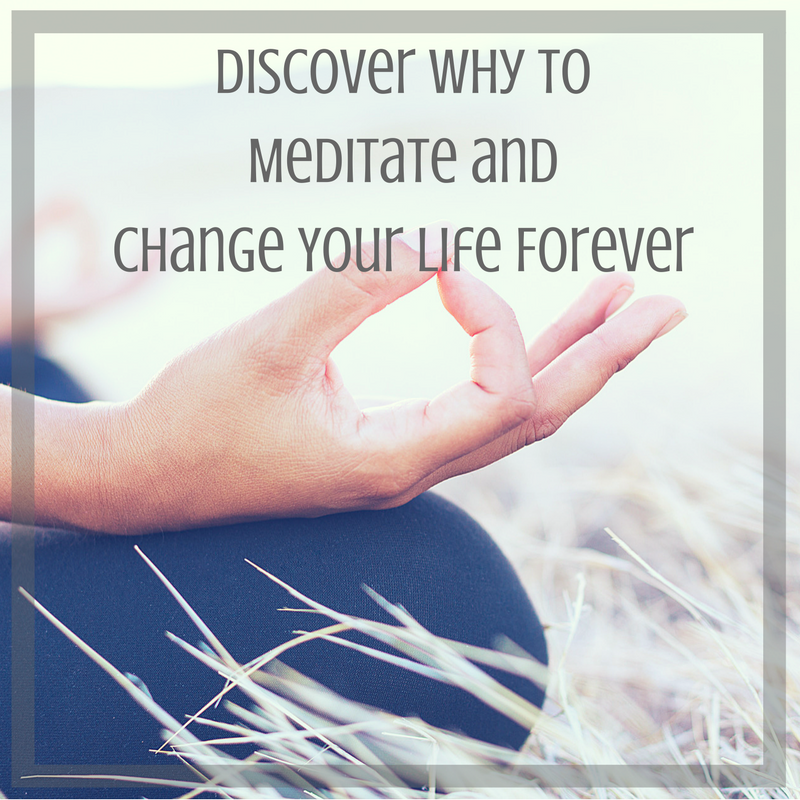How I Discovered Meditation
Once upon a time, I was a kid. A kid who loved to read. And, for various reasons, I’ve always been one of those “old souls” who everyone said was “mature beyond her years.” (This is not a prerequisite, by the way – old and young souls benefit from meditation.)
For my twelfth birthday, someone gave me the book The Power of Positive Thinking (affiliate link) by Norman Vincent Peale. I spent two days just eating it all up. I remember he talked about learning to enjoy silence and not thinking so much.
Discovering Different Kinds of Meditation
In my early 30s, I found a book called Deep and Simple by Bo Lozoff. That one book changed the trajectory of how I wanted to live my life and how I viewed meditation. It was all about discovering your own spiritual path using the best ideas from the world’s different religions.
I discovered mantras for the first time and that there are many different ways of approaching the practice of meditation.
My interest increased though I found that it was hard to stop thinking and still my mind. So, borrowing a mantra from Lozoff’s book, I started chanting “Jai Ram” to myself. It means, “Hail God.”
In that practice, somewhere along the line I figured out that not only was I chanting that mantra to myself during early morning sessions, but I would whisper it to myself and become aware of my breathing throughout the day. Not all the time, but enough to notice.
How Meditation Became So Important to Me
I realized the immense value of practicing saying this mantra to myself about a year into doing this. My oldest brother was killed in a car accident when I was 31 years old. At the time, I lived (and still do) in North Carolina, but my immediate family lived in Colorado.
My brother had lived in Texas and due to police investigations and whatnot, my family couldn’t schedule the funeral immediately; my brother also had to be taken back to Colorado. That made it hard to arrange to buy a plane ticket for a precise date.
So, Husby and I decided to drive to Colorado once we found out a rough outline of the funeral proceedings.
It was a surreal time. I wasn’t that close to my brother – he was 18 years older than me, and out of the house by the time I came along – but I could feel the acute pain my parents and older siblings were enduring. To be sure, losing a family member changes a lot of things….
My meditation practice of repeating Jai Ram to myself somehow went on autopilot. To calm myself, I think I went into overdrive repeating it over and over again.
As we drove through Tennessee, Kentucky, Indiana, Illinois, Missouri, Kansas and finally into Colorado, I spent most of that time on the road having limited conversation with J. and repeating that mantra to myself.
When we arrived in Colorado, hearing, seeing and enduring my family’s pain, I made a conscious effort to remember to breathe. My brother was too young and left behind a young son, five siblings, two parents and many extended relatives.
Still, through it all, I found immeasurable comfort in saying Jai Ram.
I now know that I endured those difficult days more effectively and with a more level head than if I hadn’t started that practice. When I felt the waves of grief cast their sorry waves over me, my comfort was that mantra.
Even members of my family asked, “how can you be so calm right now?” I wasn’t sure if they’d understand if I had tried to explain. I realized I wasn’t quite prepared to answer in a straightforward way, either.
How do you explain a process of self-discovery in the middle of a wake?
I just mumbled something like, “I’m just trying to keep it together. I don’t much like showing raw emotion in front of others.” Which was the truth.
And that was when I began practicing pretty much every day for at least 20 minutes. I was convinced – through the sheer trials and tribulations of life – how much I needed meditation to face life’s challenges, but also to enjoy it more fully.
And that became my “why.”
What’s Your “Why”?
I’ve always been prone to anxiety and feeling the effects of stress.
When I was younger, my parents – for better or for worse – never discussed money with me and never let on any problems they had. They knew I would wear that worry like a shackle and try to come up with a solution.
They wanted me to try to enjoy life.
But, I never liked the idea of turning to pills or other external solutions. Even when I was a kid and had a cold, I hated the idea of “taking medicine” to alleviate the symptoms. I was always interested in self-healing.
So, initially, my “why” for beginning a meditation practice became a way to help deal with the stress of everyday life.
I knew – instinctively – that getting up early in the morning to meditate would do me good.
So now I turn this over to you, dear reader.
You have to ask yourself why you want to adopt a practice of meditation. If you can define that, you’ll be more likely to stick with it and give it a chance.
If you want a way to connect with your innermost self, that’s a good reason.
If you want to do it to help with physical and mental ailments, that’s a good reason.
Needing a bit of calm? Yes! Wanting to chill out? Yes!
But doing it because you hear about other people doing it? Well, you have to ask yourself: is that really going to stick? Are you doing it because it’s trendy right now?
It has to come from a place within. And then you have to be open to the other things that meditation does: it naturally makes you more aware. It makes you more connected to the people around you. It makes you more connected to yourself.
That’s when you begin to evolve.
Evolving
So, yes, when I really came to adopt this practice in my life, it was more to help cope with stress. But that was just a point of departure.
Now, I want to see how far it takes me. I want to ascend to a higher consciousness and share in that journey with others.
Is this a by-product of meditation? Wanting to become a better person?
I’m not sure. But now my spiritual journey has begun to transcend everything else.
Meditation has changed my life.
So now it’s your turn. What’s your why?



Thank you for sharing your ‘why’ with us, dear Cynthia. I’m sorry about the loss of your older brother. What a powerful example of the benefits of meditation – through the good times and the bad.
Mom always called me an old soul as well. For me, meditation truly brings me peace and clarity – it helps quiet my inner voice of doubt or anxiety.
Sharing this wonderful post. Love, Maria
Maria – you are so sweet. Thank you for all the love, comments, hugs and light. Yes…various life events had moved me to start my practice of meditation and I just absolutely love it and feel like if I can share this with as many people as possible, they might understand my little, wonderful addiction.
I love the term, “old soul” – I used to not like it so much when people said it to me when I was in high school, but I’ve come to receive that compliment as a badge of honor. I’m so glad to hear that you meditate. It’s such a powerful life tool.
I appreciate – so much – the shares. You have made me smile and I could just *hug* you! xo <3